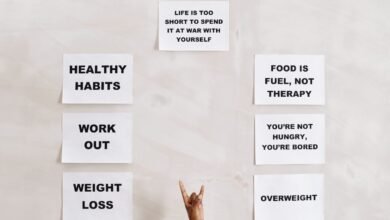8 Reasons Why People Don’t Change (Changing Someone Is Tough)

Changing our behavior is a self-engineering challenge with few equals. I’m talking about long-term, sustained change, not short-run bursts that sputter out before real change happens. Whether the change involves diet, exercise, habits, dependencies, or anything else, changing behavior is one of the hardest things any of us will ever try to do.
This is a well-researched area, and quite a lot is known about why sustained change is tremendously difficult. As people age grow, they become set in their ways, and changing becomes more and more difficult. Not impossible but difficult.
It is also easier to just continue to do the same old things. It is also probably that older people don’t have the same kind of support to change as they did when they were younger.
They pretend they have changed themselves just to get what they desire, maybe due to circumstances, maybe for the sake of happiness. They just hide their feelings to let things go smoothly. Not changing is meeting a need. They fear change because they don’t trust that the want they are trying to meet will be met. As strange as it may sound, there is a fear of getting what you want. Not changing prevents getting. When not changing stops working for you, you will be ready to change.
In terms of significant character changes or someone personal growth. I think people only change when they truly want to, they may think they want to but not realize how deep down they don’t want to. The forces that create the desire for change can come seemingly from deliberate intention or events out of one’s control.
Here are eight of the primary reasons why people don’t change.
1. We’re motivated by negative emotions.
While it’s understandable to think that strongly felt negative emotions like regret, shame, fear, and guilt should be able to catalyze lasting behavior change, the opposite is true.
Negative emotion may trigger us to think about everything we’re not doing, or feel like we’re doing wrong, but it’s horrible fuel for making changes that stick. As much as this sounds like a platitude, real change needs a positive platform to launch from, you want positive, self-edifying reasons for taking on the challenge.
2. We get trapped by thinking fallacies.
Feeling overwhelmed by trying to change a behavior tends to foster all-or-nothing thinking.“I’m going to charge in and change, and if I fail, that means I just can’t do it.” If you’re up on your cognitive biases and distortions, you know that all-or-nothing thinking is a major one.
It traps us into no-win situations because your odds of sustaining even the most impressive jolt of momentum to change behavior just aren’t very good. If we want to change, one of the first things we have to do is take all-or-nothing off the table, and purge a few other thinking errors while we’re at it.

3. We try to eat the entire elephant.
Behavior change is a big thing, no matter the behavior, and it’s rarely possible to take all of it on at once. We have to start somewhere, though, and with particular, measurable actions. Big and vague has to give way to small and specific. Rather than, “I’m going to start exercising,” it’s, “I’m going to start walking tonight after work for 30 minutes.”
Each specific action is one forkful of behavior change and a set of those actions engaged over time results in a cumulative change. To accompany those cumulative actions, we need specific goals, which behavior change research suggests are essential to success because we need performance targets to measure ourselves against. But those, too, should be realistic and specific.
4. We neglect the toolbox.
If you want to fix your car, you need the right tools. Why should changing something about ourselves be any different? Call them tools or devices or whatever you like; the point is that we need certain reliable go-to support sustained change.
Changing our diet requires, at minimum, that we find the knowledge about healthier ways to eat and a practical plan for making it happen. Maybe part of the plan includes keeping a crib sheet menu in the notepad on your phone, or daily reminders built into your Outlook calendar. Some of these tools will be specific to an individual, while others are widely adopted and available to anyone who needs them. We all need a toolbox of such supports to rely on during the long haul.
5. We try to change too much.
If you can commit to changing one behavior long-term, and make it stick, that’s commendable. But trying to take on multiple behaviors at once is a sure-fire way to send all of them into a ditch. The resources we rely on to make change happen are limited attention, self-control, motivation, etc. Trying to change too many places unrealistic demands on those resources and dooms our efforts early on. We forget that the other areas of our lives keep spinning and also require those resources, so even just one additional behavior change commitment is a big deal.
6. We underestimate the process.
Change is never just one thing, it’s a lot of connected things, and sustained change doesn’t happen without a process that considers all of the pieces. You can consult any number of models for behavior change and spending some time doing that is worthwhile, but the bigger point is that long-term behavior change involves steps. It’s easy to fool ourselves into believing that it should be so much simpler, but nothing about behavior change is simple. It’s a tough, process-oriented challenge to move the needle even a little.
7. We forget that failure is usually a given.
If you try to make a change and fail, you’ve proven one of the sturdiest truths of behavior change: Failing at least once is part of the process, and it’s probably going to be more than once. Failing reveals more to you about what deserves your attention and energy in the next round (and the next). The time-tested change process models all factors in failure as part of the process and encourages those who would change to see failing as a step, not as the end of the process or an excuse to stop trying.
8. We don’t commit.
Finally, but perhaps most important, what the best of behavior change research tells us is that if we haven’t committed to accomplishing whatever we want to accomplish, it won’t happen. We want a “commitment device” that firmly establishes what we’re going to do and how we’re going to do it. Everything else starts there.
Lastly, People want to be given a reason to change to go to the effort of doing it. Many people see no reason to change. If a smoker were to be shone his chest x-ray and the doctor pointing out his lungs were showing the first stages of emphysema. Then he would be incentivized to stop.
People generally don’t want to change. People are moronic in that they want to feel like they have it all figured out. Heard of the Dunning-Kroner effect? A lack of knowledge tends to convey a lack of power, so making someone feel like they’re missing out on a vital piece of knowledge makes them feel stupid and therefore vulnerable and/or powerless.
No person wants to change their beliefs. No matter how much time you make that person understand certain things, they really won’t change. Some people say that beliefs are tied to a person’s DNA. The only way to change someone’s beliefs is that if they want to do it themself. Most of the time it’s the life that a person leads that leads to the beliefs that they have.
If someone’s beliefs are not really good and they don’t understand then they require to get help. Getting help is really important in this case as your beliefs may get in your way of life. You want to find help to know what new things can you find that will help your mindset. There are a lot of things that you want to know in order to lead a really good life. If a new world and we need to change for good. A new world requires new thoughts.
Change happens as new information is learned and enough time has passed to process that information. Most people are stuck in their routine and unopened to learn new information and, engage with others that don’t necessarily align with their beliefs.



